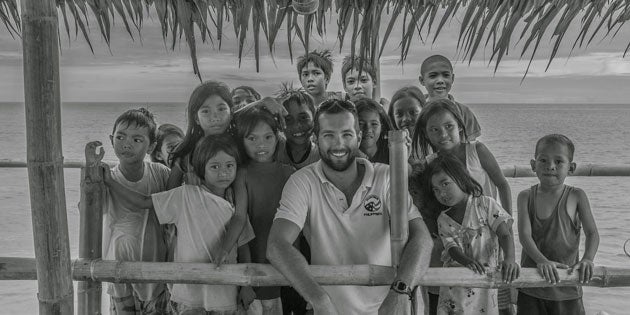After college graduation, not everyone is ready to join the rat race and hunt for a job. Some graduates opt for a master’s degree instead, while others might join the Peace Corps.
And some of these people, like Tyler Hassig ’16 (MSES), do both.
In November 2015, Hassig returned from a two-year Peace Corps stint in the Philippines where he also researched a master’s thesis concerning the protection of marine sanctuaries. As one of the near-to-last graduates of the 30-year-old Peace Corps Master’s International Program (which will be discontinued by the Peace Corps in September 2016), Hassig was able to study abroad, help overseas communities, explore exotic foreign landscapes and earn his Master of Science in Environmental Studies at the College.
“Putting them together was the right combination,” Hassig says of the Peace Corps and his advanced degree. “It gave me the opportunity to do research I could never have done here in South Carolina.”
Before beginning his journey, Hassig says he would have had trouble locating the Philippines on a map. But in December 2013 he was sworn in as a Peace Corps volunteer in the country, soon to familiarize himself with the miseries of dengue fever and typhoons while also acclimating to a different climate, culture and language.
Eventually the Peace Corps assigned Hassig to the island of Guimaras, where he surveyed local coral, seagrass and mangrove forests. As part of his thesis project, he also evaluated the marine sanctuaries that had been established by various towns on Guimaras. These sanctuaries are locally managed and susceptible to overfishing, especially since there is hardly any meaningful policing of the sanctuaries.
As an environmentalist, Hassig was sensitive to the damage done to the marine sanctuaries by overfishing. But by living among Filipinos for two years, he says he came to understand how desperate many fishermen are, and that overfishing is often attributable to economic need, not environmental indifference or greed. One solution to overfishing, he says, is to help Filipinos discover alternative livelihoods that decrease their dependence on the fragile sea.
“The longer I lived in the Philippines… I was able to see where the fishermen were coming from,” says Hassig, who says the Peace Corps emphasized the importance of appreciating local perspectives.
Hassig’s pictures make Guimaras look like paradise, but he says there were challenges conducting academic research in the Philippines. Internet and power outages could occur often, there was no air conditioning, and temperatures could get quite hot. Still, he has no regrets about his time abroad and speaks warmly of his Filipino hosts, neighbors and friends.
At the end of the day,”said Hassig, “It’s totally worth it.”







